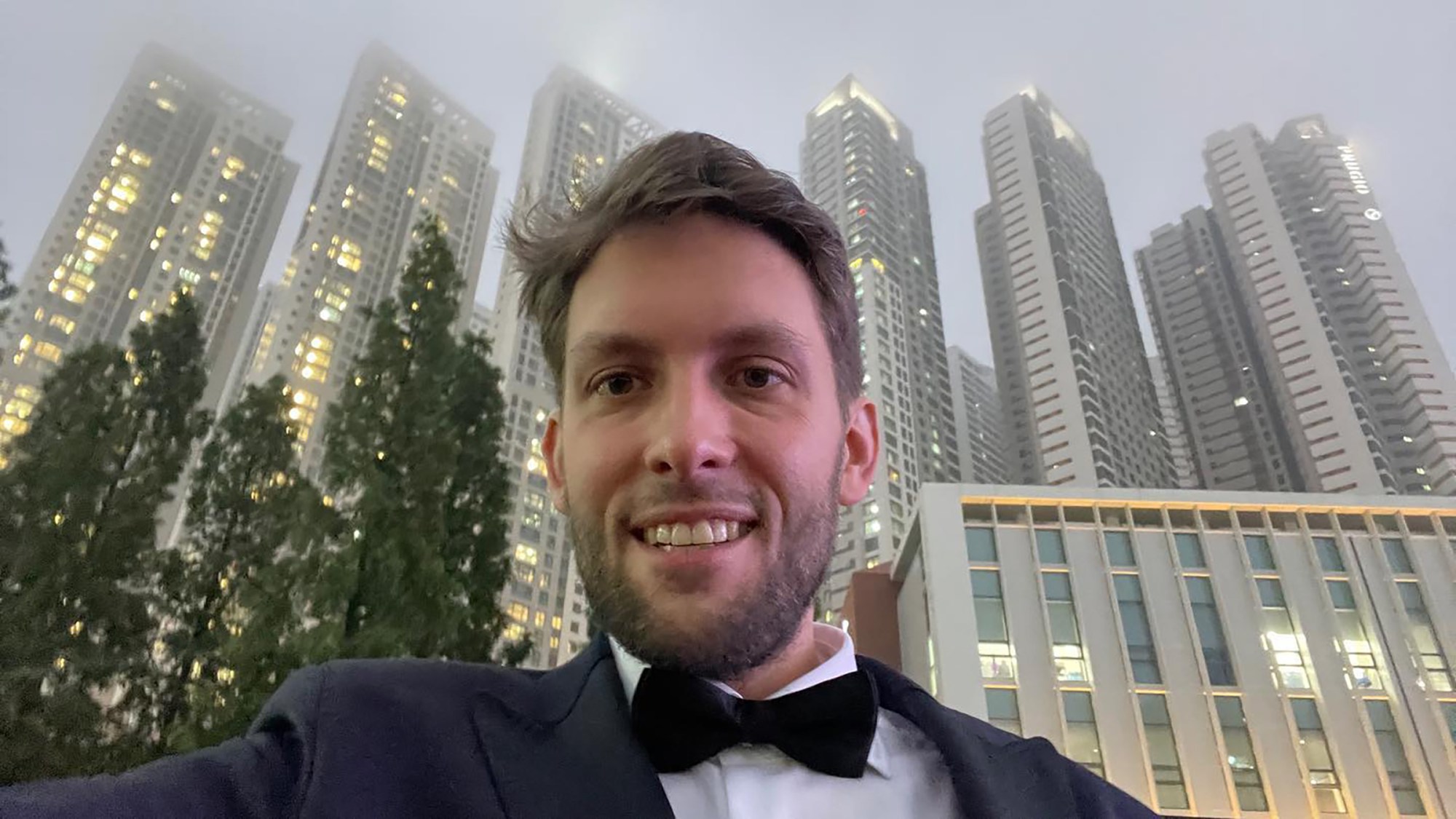
- Interviews
Robert Hloz Makes Feature Debut with Film on Immortality Questions
Czech filmmaker Robert Hloz is definitely a new director to watch. He started his career with three successful short films: The Mill (2011) won the Kodak Student Gold Award for best short film of the year. A year later, Numbers was nominated for a Czech Academy Award. It also garnered over one million views online. In 2015, Hloz directed Liars which won Best Czech Student Film at iShorts 2015 and was a 43rd Student Academy Awards Semifinalist.
Now Hloz is premiering his debut feature Restore Point, a sci-fi movie set in 2041. Its premise gives anyone who has an unnatural death the right to be brought back to life provided they’ve dutifully created a backup of their personality called a “restore point.” This project questions the notion of artificially extending life ad infinitum and has been leaving audiences wondering long after leaving the screening room. After premiering at Bucheon Fantastic Film Festival in South Korea, this ambitious Czech project just became quite the crowd-pleaser at the 2023 Karlovy Vary film festival.
The director agreed to an interview over Zoom.
What was your first interaction with cinema?
Curiously, while growing up, my parents did not allow me to watch movies. They thought they were too violent for a young boy. I remember trying to watch Matrix through a keyhole. Maybe because that was denied to me at an earlier stage, in my teenage years I became fascinated with cinema. I knew I wanted to go to film school. After studying for a while in Czech Republic, I decided to apply to a South Korean film school and got in. I have been a fan of Korean films for a while and wanted to learn from the source. I came out of Korea with a short film that happened to become quite successful in Europe. It was a short futuristic film. Exotic, for European standards at the time. It was titled Numbers.
Was the success you had with your shorts crucial to get the funding and the right production partner you needed for Restore Point?
Definitely. My country [Czech Republic] still gives a lot of importance to a director’s film festivals’ track record. The success of the three shorts was quite crucial to access funding and get Film Kolektiv as a producing partner. We managed to get all the funds we applied for. We did it in the classical way. Probably, because the script was so bold that no one wanted to be seen as the “coward” who did not take a chance in the movie [laughs].
What attracts you to the sci-fi genre?
Sci-fi is a genre that allows clever entertaining stories. It brings up philosophical questions. I love thinking about life and our struggles with morality.
What was your biggest challenge during the production of the movie?
How to write the script in a way that was appealing to the audience but still be feasible in terms of our budget. There are high expectations for sci-fi. We didn’t want to leave audiences unsatisfied. Achieving a balance between our €2 million budget and still managing to get the wow factor was definitely the biggest challenge. That said, I love tackling obstacles so that ended up being quite interesting.
What inspires you as a filmmaker?
I read a lot. That’s a habit I have since childhood. Probably stimulated by the fact that my parents didn’t allow me to watch movies until later in life. I also get a lot of inspiration from traveling and computer games.
As one of the up-and-coming Czech filmmakers, how do you see the future of Czech cinema?
I believe that the post-revolution generation, which I am a part of, is going to bring a big change to Czech cinema. We are making movies that are universally appealing. Before, Czech films only targeted Czech audiences. That has changed. The future seems promising.

